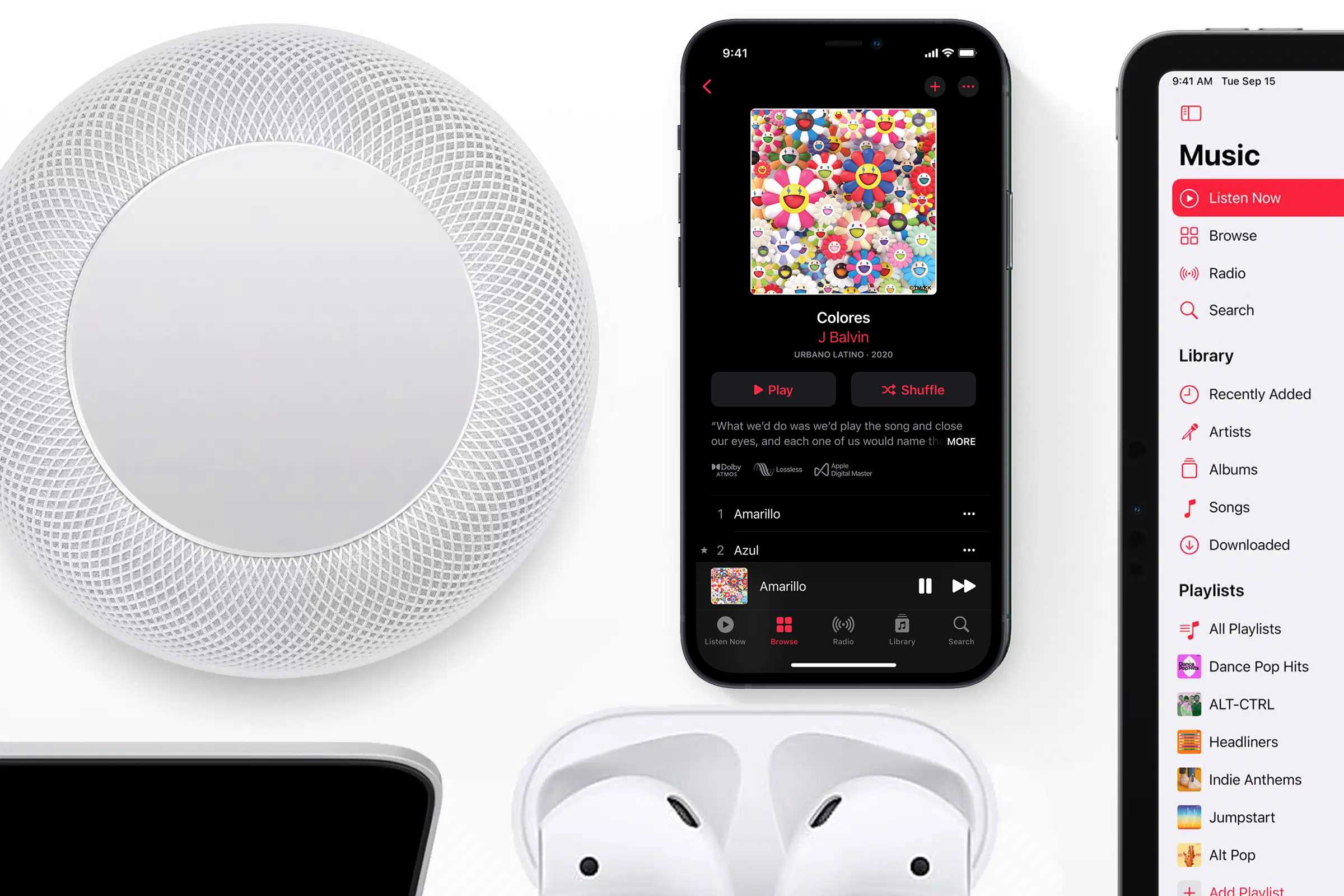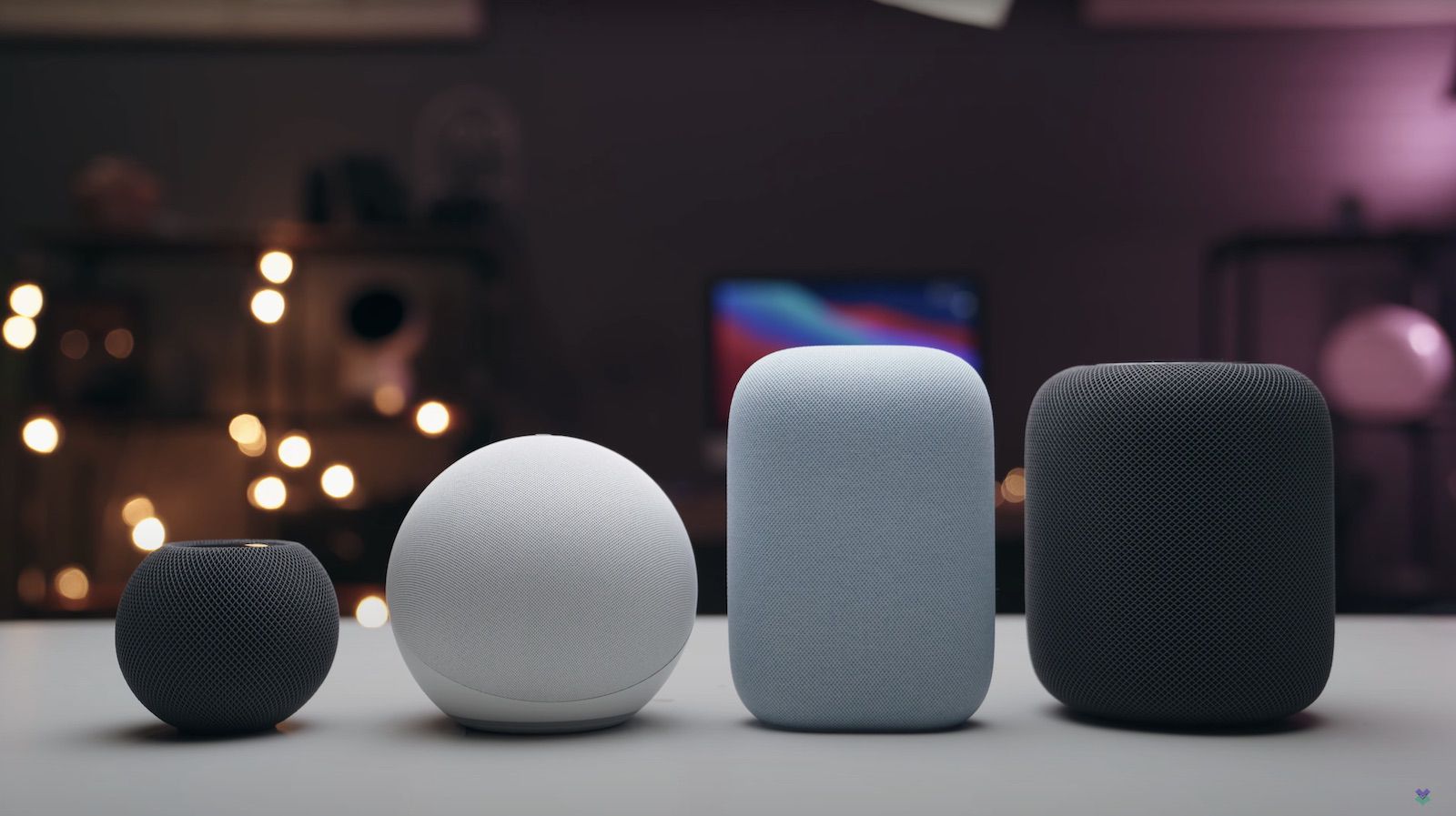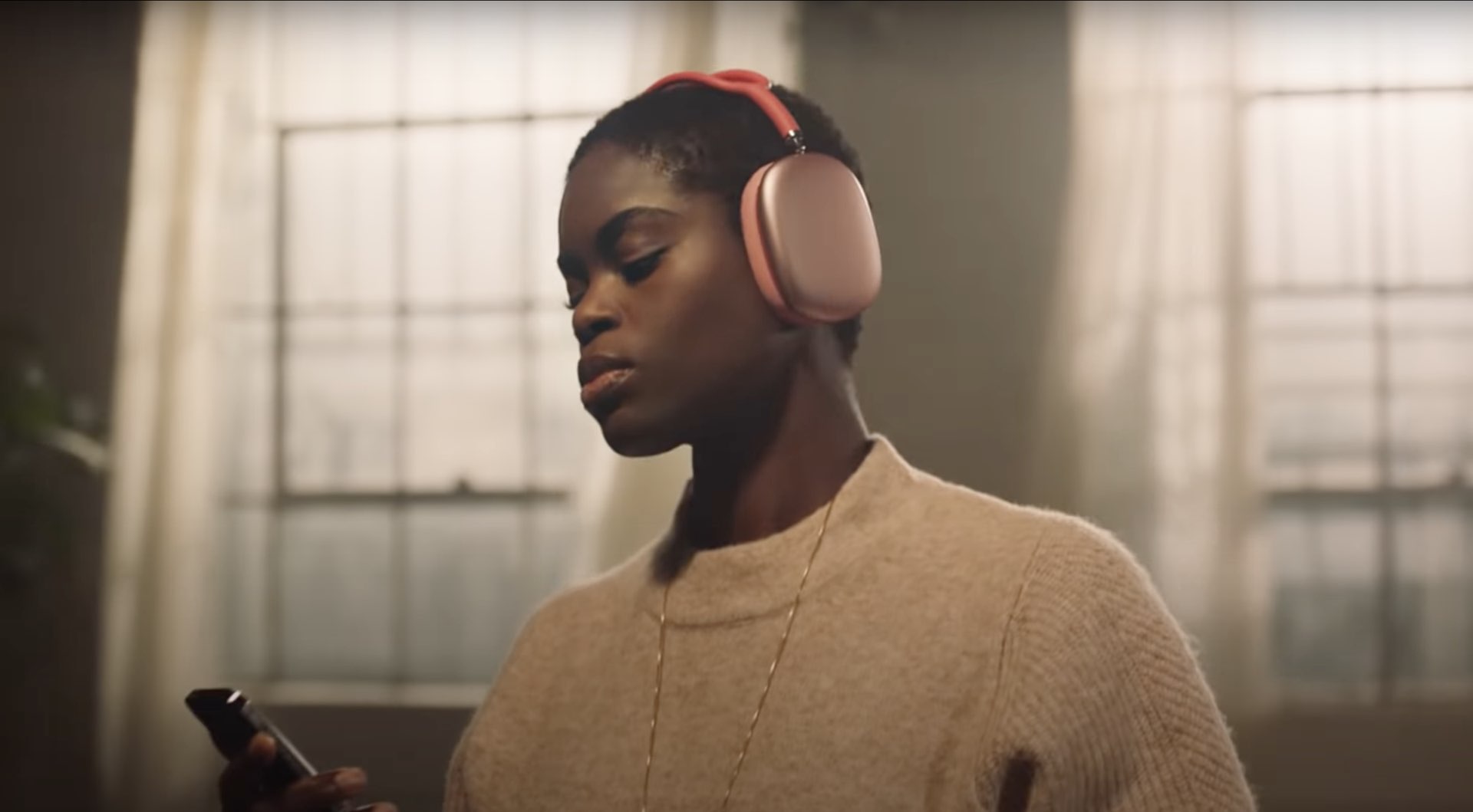
Apple Music will offer Dolby Atmos and lossless streaming to their service in June. This is to compete with Amazon’s HD Music and Tidal HiFi as well as bring the studio recording experience to your ears. What exactly is lossless streaming? A term used by audio experts to describe digital tracks that don’t lose any information due to compression. Basically, it’s an HD song with all the crispness and clarity.
Now, I can understand the Dolby quality. That could be a great upgrade since the quality from device to headphones sometimes gets lost. And all you’d have to do is adjust the sound settings in the Apple Music app. It seems Apple is trying to upgrade with two new high-quality music options at no additional cost to subscribers. We’ve recently learned that the AirPods Max comes equipped with spatial audio capabilities ensuring an immersive listening experience. It seems once this launches, all music will play in Dolby Atmos on AirPods and Beats earbuds that have an H1 or W1 chip, along with built-in speakers on the latest versions of iPhone, iPad, and Mac.
No specifics have been released on the amount of these HD songs yet, but it’s rumored to be in the thousands. More tracks will be added regularly. This collaboration also makes it easier for artists, producers, and engineers to create music in Dolby. Coming to the lossless audio division, the tech mogul states they will use “Apple’s ALAC codec (Apple Lossless Audio Codec) at up to 48kHz, while Hi-Resolution Lossless increases the quality to 192kHz”. For the “true audiophiles” out there, this one’s for you. There is a catch, however. Not all devices will be compatible with this, including the almost obsolete HomePod and HomePod mini.
To summarize, lossless tracks can be played just not at lossless quality. But try your hand at the spatial audio offered on the AirPod Pros and the Max Pods. They predict spatial audio to be a bigger win than its counterpart, at least for now anyway.




